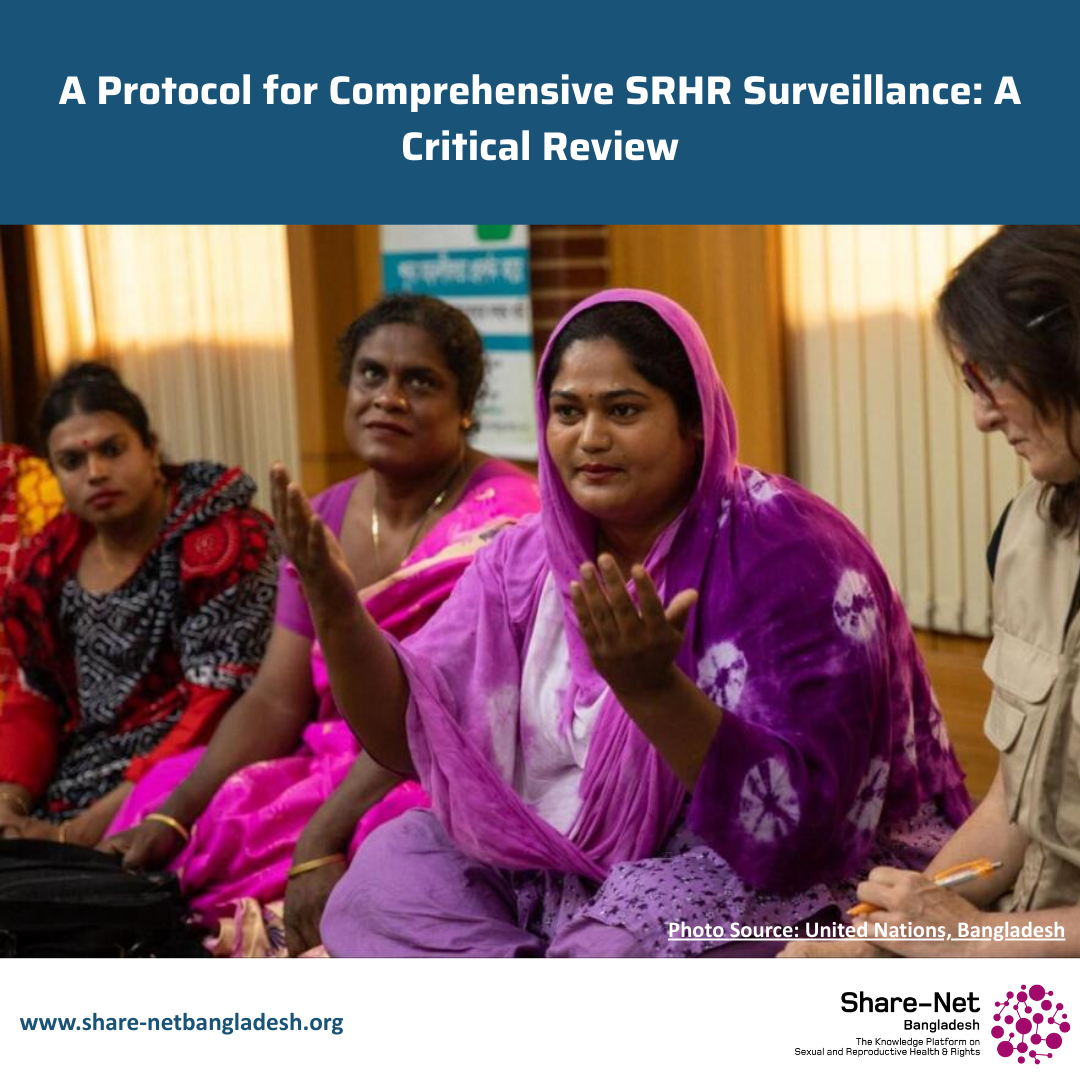A Protocol for Comprehensive SRHR Surveillance: A Critical Review
Historically, we have seen the existing public health discourse for key populations (KPs) nationally and globally focus on addressing HIV and sexually transmitted infections (STIs), often neglecting other critical aspects of sexual and reproductive health and rights (SRHR). A new study protocol called “Establishing a surveillance system on sexual and reproductive health and rights (SRHR) of key populations (KPs) at risk of compromised outcomes of SRHR” offers a fresh way to systematically address this data gap.
The research, led by a team of experts at the International Centre for Diarrhoeal Diseases Research, Bangladesh (icddr,b), is designed to establish a surveillance system for males who have sex with males (MSM), male sex workers (MSW), transgender women (hijra), and female sex workers (FSW). This initiative not only seeks to quantify the burden of SRHR issues but also aims to generate the evidence necessary for designing more targeted and inclusive interventions.
The proposed study utilises a mixed-method, repeated cross-sectional design, a methodological blend described by the authors as a first of its kind for SRHR surveillance globally. The quantitative component will involve a three-year study with data collection in the first two years, aiming to survey a total of 2,240 KPs across two sites: Dhaka for MSM, MSW, and transgender women, and Jashore for FSW. The study will gather quantitative data through face-to-face interviews and the collection of biological samples. This will help measure the prevalence of conditions such as syphilis, human papillomavirus (HPV), Neisseria gonorrhoeae (NG), and Chlamydia trachomatis (CT). Furthermore, the qualitative part includes in-depth interviews (IDIs) and key-informant interviews (KIIs). This aims to explore and clarify the details behind the quantitative results.
Interestingly, the protocol’s methodological innovations extend beyond its mixed-methods approach. It incorporates a knowledge translation framework to ensure that research findings are converted into actionable evidence for stakeholders. This design is particularly valuable in a context where KPs face immense social and legal barriers, as it attempts to directly bridge the gap between academic research and public health policy. Additionally, the protocol includes strong ethical protections, such as offering free treatment for participants who test positive for any STI and a referral system for conditions like HPV.
Despite these strengths, the protocol transparently acknowledges key limitations. The data generated from the two selected sites may not be representative of all KPs in Bangladesh, a deliberate trade-off for a more in-depth study. The sampling method, Time Location Sampling (TLS), may miss KPs who are “hidden” or hard to reach. Nevertheless, the protocol marks a crucial step toward a better understanding of SRHR among marginalised populations. By providing a breadth and depth of insights, the study has the potential to serve as an early warning system for emerging health issues and inform the refinement of existing intervention modalities, significantly enhancing the SRHR knowledge base in Bangladesh and beyond.
Sources:
-
Establishing a surveillance system on sexual and reproductive health and rights (SRHR) of key populations (KPs) at risk of compromised outcome of SRHR- A protocol for a mixed-method study
-
Meeting the Reproductive Health Needs of Female Key Populations Affected by HIV in Low- and Middle-Income Countries: A Review of the Evidence
-
Exploring and addressing the sexual and reproductive health and other related rights of transgender women in Bangladesh: A mixed methods protocol under the policy analysis framework
-
Can rights stop the wrongs? Exploring the connections between framings of sex workers’ rights and sexual and reproductive health
-
Social Determinants of Sexual Health Among Sexual and Gender Diverse People in South Asia: Lessons Learned from India, Bangladesh, Nepal, and Pakistan

